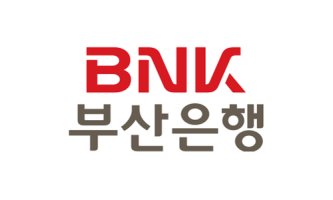Above all, traditional industries based in provinces such as shipbuilding, automobiles and machinery are on the decline, a factor unfavorable to BNK Financial, which operates around companies in these industrial groups
BNK 'Crying' JB 'Ando'...mixed local financial group performance
Amid the years of slump in major industries such as shipbuilding and automobiles, BNK Financial Group, which has been suffering from a bad news called Corona 19 (COVID-19), has accepted the "worst report card." JB Financial Group's first-quarter earnings, on the other hand, were smooth.

BNK Financial announced Friday that it earned a net profit of 137.7 billion won in the first quarter, down about 22 percent, or 39.4 billion won, from 177.1 billion won a year earlier. Its interest profit fell 3.8 percent, or 21.4 billion won, from a year earlier despite a drop in the amount of provisions transferred by affiliated banks. Losses related to securities were also largely affected.
BNK Financial's earnings shock is attributed to the excessive concentration of its lending structure on small and medium-sized enterprises and self-employed people. For example, Busan Bank, affiliated with BNK Financial Group, has about 90 percent of corporate loans from small and medium-sized companies, while Kyongnam Bank also has about 93 percent of corporate loans. Corporate loans are mostly variable-rate loans, forcing profits to go down during the fall in interest rates.
Above all, traditional industries based in provinces such as shipbuilding, automobiles and machinery are on the decline, a factor unfavorable to BNK Financial, which operates around companies in these industrial groups. BNK Financial's delinquency rate jumped to 0.84 percent in the first quarter of this year from 0.68 percent at the end of last year. The NPL ratio also rose from 1.04% to 1.08% over the same period.
On the other hand, JB Financial, which had been on a high roll since Kim Ki-hong took office, continued to see its earnings rise. JB Financial's net profit stood at 96.5 billion won in the first quarter. The figure is up 4.3 percent, or 4 billion won, from 92.5 billion won a year earlier.
Jeonbuk Bank and Kwangju Bank drove the earnings rise. Jeonbuk Bank posted a net profit of 29.6 billion won, up 13.8 percent from a year earlier, while Kwangju Bank also posted a net profit of 46.7 billion won, up 3.1 percent over the same period.
In particular, soundness management was outstanding. The group's delinquency rate dropped to 0.7 percent, up 0.16 percent from a year earlier.
In the banking sector, the influence of Corona 19 will be reflected from the second quarter, so local financial groups, which have a relatively high proportion of loans to small and medium-sized companies, are concerned about the loan loss caused by the spread of Corona 19. Already, international credit rating agency Moody's Investors Service included four regional banks -- Busan Bank, Kyongnam Bank, Daegu Bank and Jeju Bank -- in its review of lowering their credit ratings last month.
If the credit rating goes down, local banks will be burdened with funding costs, which will inevitably disrupt future profitability management.

